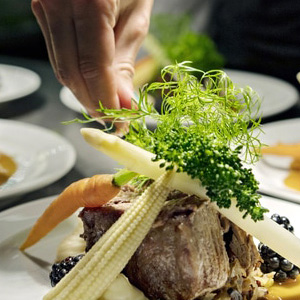

|
When is the time to put passion on the backburner?
Do chefs allow their passion to take control of their destiny? Or at some point have they reinvented themselves to acquire the values, behavior and attitudes required to be a professional. As importantly does passion inhibit a chef’s ability to reality check their future. It is quite common to hear young chefs say why they are passionate about being a cook/chef. however, cooks and chefs need to be aware of the dangers that lie behind being forever obsessed to be a chef. There are many consequences from being passionate. • Passione does not automatically lead to success. Most professional chefs commence their career with a passion to be a chef; however, at this early stage in a career, not understanding the unhealthy nature of being passionate does little harm. • However, at some stage one needs to learn how to “reality check” passion and harness the obsession to add professional attitudes, or their passion will grow into a weakness. More importantly, passion may be one of the major reasons why cooks and chefs get a raw deal in their occupation. • Passionate people are very emotional and more often than not, unable to apply common sense to high pressured situations. We all know when the heat is on the pans, it is high-pressure, additionally this passion is fired in generally an emotional charged working environment sometimes managed by a “passionate” control freak. • Cooks and chefs are generally acknowledged as being highly strung and known to be subject to uncontrollable outbursts. This is often excused because of their artistic nature. Why? Their passion has allowed their emotions to take control? Long hours, constant pressure, personal life is tough, an occupation that requires both physical and mental effort, working often with unreasonable client and management expectations and in highly competitive workplaces are only a few of the basic occupational hazards. This is probably the wrong environment to add a passionate personality. I suggest there are tell-tale signs of chefs who have an unhealthy passion: • They are likely to be exploited and often unable to see they are being exploited. The capacity to be able to reality check one’s idealistic attitudes is one of the basic elements that shows a cook/chef has evolved into a professional. Examining the very successful professional leading chefs around town They have controlled their passion and developed their professional attitudes and standards. They have evolved to become analytical, relaxed, unflappable and confident. |

